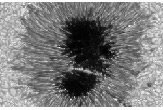BANGKOK In Thailand's first coup in 15 years, military leaders seized control of Bangkok on Tuesday night, suspended the Constitution and declared martial law in the capital, effective immediately.
There were no reports of violence.
The moves came while Prime Minister Thaksin Shinawatra was in New York preparing to address the United Nations. He declared a state of emergency on Thai television, but was cut off in mid-speech. Later, he canceled his address to the General Assembly.
The coup, led by the army chief, General Sondhi Boonyaratkalin, also "terminated" both houses of Parliament, the cabinet and the Constitutional Court.
The events on Tuesday returned Thailand to a time that most experts here thought was finally past, raising questions about the future of Thai democracy and the stability of a country that is a prime tourist destination with strong economic links to the West.
The coup came at the height of a drawn-out political crisis. In April, Thaksin was forced by huge street protests to step aside despite an overwhelming electoral mandate. In fact, though, he continued to lead the government and to wage political battles against his opponents.
After a long break, demonstrations against the prime minister had been due to resume this week, bringing with them the danger of violent clashes between his supporters and opponents.
Late Tuesday night, Sondhi was shown on television in an audience with King Bhumibol Adulyadej, a clear indication that the highly revered constitutional monarch endorsed the move.
On a military-controlled television station, a general in civilian clothes said a "council of administrative reform" had seized power in the name of the king.
Speaking for Sondhi, who has publicly feuded with the prime minister, General Prapas Sakultanak said that the military did not intend to rule the country and that it would "hand power back to the people." He gave no timetable.
The military has a long history of political involvement, staging 18 coups since Thailand became a constitutional monarchy in 1932. The last one, in 1991, installed a military leader who was pushed from power by a popular uprising the next year.
Under heavy rain, tanks and armored personnel carriers took up positions blocking the entrance to the prime minister's office on Tuesday night. Other tanks arrived at government offices and major intersections. Witnesses reported that roadblocks had been set up on roads leading into the city. The streets were quiet, and even at the prime minister's office there was little tension. Some bystanders photographed one another standing near the tanks.
Kitichai Songkeattisi, 40, a commercial photographer, said: "The last time was much more intense. People were more afraid."
Thaksin is one of the most popular - and unpopular - prime ministers in recent Thai history. Thais' different viewpoints demonstrate a sharp social divide that he has played on during the crisis.
Thaksin's party, Thai Rak Thai, or Thais Love Thais, has won three elections by landslides, in 2001, 2005 and again in April. Because of his broad support among rural voters, he was widely expected to win any new election.
But as he has tightened his grip over much of the political scene, opposition to him has swelled among the elite, mostly in Bangkok. Public indignation rose after his family's tax-free sale of its $1.9 billion stake in a giant telecommunications company to a Singapore company.
On television, the military spokesman, Prapas, accused Thaksin of corruption and constant interference with the legislature and the courts. He apologized to the public for any inconvenience caused by the coup.
In an effort to end the demonstrations and reassert control, Thaksin called an early election in April, which he won in a landslide. But the opposition boycotted the vote and a court annulled the result, in a severe setback for the prime minister.
An election commission loyal to Thaksin set a new vote for Oct. 15, but its members were removed and jailed by a court for malfeasance. A new commission has said that election would be delayed.
The televised announcement on Tuesday was made after reports of large-scale military movements around the capital. The military has been sharply divided between officers loyal to the prime minister - some of them his relatives - and others who oppose him.
There has been tension over an impending military shuffle that would determine which faction would dominate.
Interviewed in New York by CNN soon after early reports of a coup, Deputy Prime Minister Surakiart Sathirathai said, "We hope that the situation should return to normal soon because the prime minister is constitutionally and legally elected prime minister and this is an elected government, so we have to do everything we can to uphold the principle of democracy."
Prapas, speaking in Thailand, laid out the rationale for the military's move.
"The government's performance destroyed harmony in society," he said. "Everyone tried to win over each other, and the situation continued to worsen. Most people don't trust the government because there are many signs of corruption."
He said the prime minister had hobbled independent bodies created by the 1997 Constitution to provide checks and balances. A leading demand of the prime minister's opponents is the writing of a new constitution that would temper executive power.
Prapas said many attempts had been made at compromise but had failed. "That is why we, the Party for the Reform of Governance under the Constitutional Democracy, which consists of the army commanders and national police commander, have to seize power."
He added: "We would like to insist that we have no intention of governing the country. We will return the power of constitutional monarchy back to Thai people as soon as possible to maintain peace and stability."










